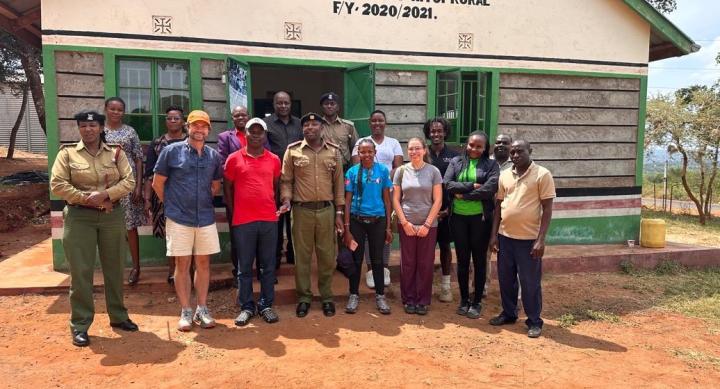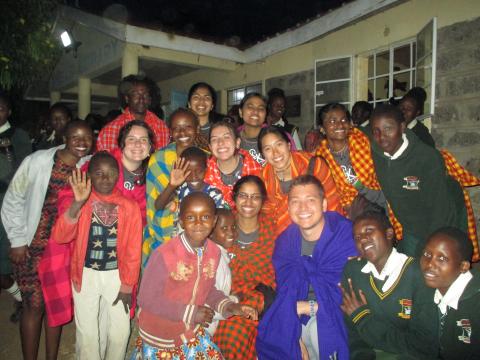
59 percent of Kenyans have access to safe drinking water, UNICEF reports, yet securing it remains a challenge for many. Local water sources are often brackish, or too salty to safely drink, and numerous communities lack centralized systems altogether, making clean water both difficult to obtain and expensive.
This summer, a group of UT Austin undergraduates and faculty traveled to Eastern Kenya to address the region’s water security issue as a part of the university’s 2023-2024 Presidential Award for Global Learning. They collaborated with South Eastern Kenya University and Austin-based nonprofit GivePower to implement solar-powered water farms and research the socioeconomic impacts of these systems.
Patrick Bixler, Ph.D., an assistant professor at the LBJ School of Public Affairs an RGK Center faculty member, collaborated with Manish Kumar, Ph.D., associate professor at the Cockrell School of Engineering, and Lucy Atkinson, Ph.D., associate professor at the Moody College of Communication, to lead the interdisciplinary effort.
“It's one thing to read about water insecurity,” said Dr. Bixler. “It's just mind blowing to be there and to see the situation with no centralized water infrastructure, and what people have to do every day to live.”
Dr. Bixler led the UT Austin group’s evaluation team, which spent the summer conducting surveys to compare communities with GivePower water farms to those without.
According to GivePower, the water farms are fully powered by solar energy and battery storage, with the capacity to transform 70,000 liters of brackish water into clean, healthy drinking water each day.
The evaluation team conducted over 301 surveys in three Kenyan communities in just eight days, focusing on differences in water costs and public health outcomes.

“It’s really promising,” Dr. Bixler said. “We see evidence for a community-level impact in the average price paid for water of any quality, and then a major impact, on the price paid for desalinated and disinfected water.”
Ten undergraduate students were a part of the field work in Kenya, including Jayline Garza, a senior majoring in Nutrition and Health and Society. Garza shared that her grandmother’s stories of growing up without reliable water access in rural Mexico significantly fueled her interest in this research.
“Being able to have a direct impact on someone else's access to water was very full circle for me,” Garza said.
Garza was particularly invested in researching the water farms’ impact on reported waterborne illnesses. Reflecting on the surveys conducted in Wote, Kwa Vonza, and Wamunyu, Garza shared her enthusiasm about the results.
“I was really excited to get the numbers back, because I [felt] so strongly that there [was] going to be a big difference. And there was.” Garza said.
The surveys revealed that people in the community with a solar water farm, Wote, were 44 percent less likely to report that someone in their household had experienced a waterborne illness compared to those in the communities without such facilities, Kwa Vonza and Wamunyu.
While in Kenya, the UT Austin group also participated in a GivePower service project, building solar panels and bringing laptops and school supplies to an all-girls school in the Maasai region. Michael Ayele, a junior majoring in Business MIS and a team member on the project, reflected on the profound impact the experience had on him.
“Regardless of your major or your studies, I think the act of service and getting to connect with these people from a whole different walk of life is an enriching experience, something that you will take with you wherever you go,” Ayele said. “I can approach the jobs I’ll have in the future with a level of openness, a level of empathy.”
Back in Austin, Texas, Dr. Bixler and his team are now working towards publishing their research. With the support of GivePower, Dr. Bixler will bring another group of undergraduate students to Kenya in May 2025. The upcoming group plans to build on their findings, continuing to make cross-comparisons between the different communities with an eye set on Kwa Vonza, which will gain a GivePower water farm in December 2024.
